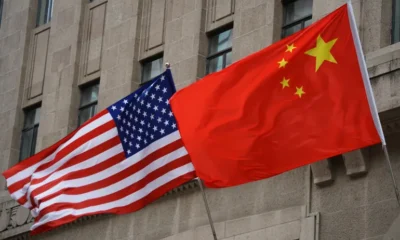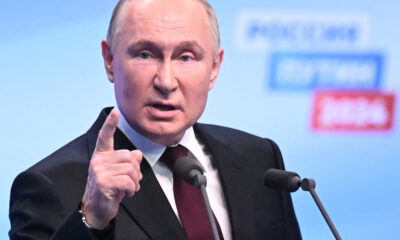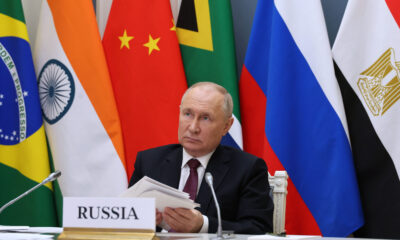Business
Nigeria set for an economic windfall as the Western World comes in hard for Russia



A full ban on Russian crude oil seems imminent as the European Commission proposes further sanctions on Russia following continued attack on Ukraine, with this ban set to have potential influence on the Nigerian economy.
The proposed ban, which will be sending oil prices soaring to over 4 per cent to about $108 per barrel, will inevitably mean a higher cost on petroleum products for Nigeria, which would then potentially mean an increase to subsidy spending.
The leading consumers of Nigerian crude oil mostly consists of India and China and seeing an opportunity to leave behind Nigerian crude oil for more discounted Russian oil once the western world refuse patronage of Russia, there would be no hesitation by these countries to move to a more flexible market, which will very much hurt Nigeria’s economy.
India, the world’s third-largest oil importer and Nigeria’s largest crude consumer, is, according to Bloomberg, negotiating discounts for Russian oil requesting for below $70 per barrel price to compensate for logistics, financing and sanctions troubles. Should India go on to agree terms with Russia, state-owned refiners in India could import as much as 15 million barrels of Russian oil in May, Bloomberg reports.
Though European Commission President, Ursula von der Leyen sees it a hard task getting the whole of Europe and the Western world to abandon Russian oil, she deems it necessary and the go to measure to quell Russia’s influence on the global market.
“Let us be clear: it will not be easy. Some member states are strongly dependent on Russian oil. But we simply have to work on it. We now propose a ban on Russian oil. This will be a complete import ban on all Russian oil, seaborne and pipeline, crude and refined,” the European Commission President said.
It stands to reason that one way or another, the development may ultimately turn out as a blessing for Nigeria, who is already courting with European investors, albeit the immediate implication is projected to worsen the inflation in Nigeria as a result of the high cost of petroleum products being imported.































